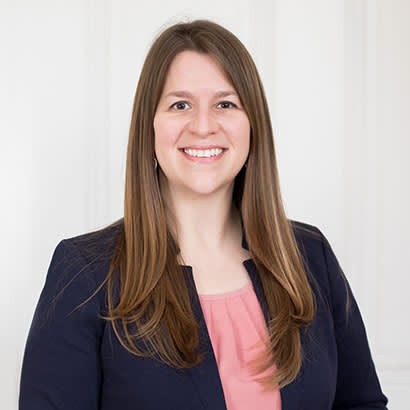
Kara Kish, MPA, CPRE, CPSI, grew up in Mentor, Ohio, before attending Indiana State University, where she earned a bachelor’s degree in recreation and sport management with a concentration in community recreation. Kish went on to attend Indiana University, Indianapolis, where she earned a Master of Public Affairs degree. She now serves as the director of Cincinnati Parks and is pursuing a Ph.D. at Indiana State University, where she serves as a lecturer for the university’s department of recreation and sport management. When asked about her background in parks and rec, she says, “I’ve never worked a single day outside of parks and rec. It is my passion. This is not just a job, it’s who I am as a human being.”
Parks & Recreation recently spoke with Kish to learn about how she has developed her career and to get her thoughts on mentorship in the field of parks and recreation.
Parks & Recreation: What role have mentors played in your career development?
Kara Kish: Early in my career, I was introduced to the Indiana Park and Recreation Association, where I first met professionals who were dedicated to serving the public and mastering their craft. I was able to see the industry at large, and I began to understand the professionalism that is brought to this field. In the beginning of my career, I served in various leadership roles, up to serving as president of the Indiana Park and Recreation Association in 2012. In 2010, I was introduced to NRPA through the Young Professional Fellowship. I was partnered with Detrick Stanford for the [mentorship part of the] fellowship, who was and continues to be a mentor in my career. Meeting Detrick showed me the full extent of how a mentor can positively affect my motivation to excel as a professional. Throughout my career, through different opportunities, I have been paired with many mentors, both formally and informally. It all contributed to my professional journey.
P&R: How can individuals in leadership roles help develop the next generation of leaders for the field?
Kish: By being available. Not only seasoned leadership, but even young professionals have a role to play in mentorship. By making yourself available through formal mentorships or by following up with a young professional who you meet at a conference, you are giving back to the profession by connecting the chains of history to inspire the next generation. Every generation of leaders will be uniquely impacted by the needs and the circumstances of society, but there are lessons to be learned from those who have served in leadership roles.
P&R: What advice do you have for new people entering the field of parks and recreation?
Kish: Unabashedly, seek to be involved. Whether that’s participating in a conference call with the young professional network or volunteering for a leadership role, seek to be involved and try to make a difference. You will grow as a professional by being surrounded by other young professionals and distinguished professionals who are all working toward a common vision.
P&R: How do you maintain work/life balance?
Kish: I think it’s critical that park and rec professionals practice what we preach, that we live up to our values of leisure and recreation in our personal lives, so that we can be at our personal best [and put that] back into our work to serve the community. For me, I am always looking for respite in the form of solitude. Even in the busiest urban parks, you can find a place to read, feel the wind on your cheek and listen to the birds in the trees. Here in Cincinnati, Washington Park, a busy urban park, is my favorite spot to re-create myself and my emotional energies.
Lindsay Collins is the Associate Editor for Parks & Recreation magazine.

